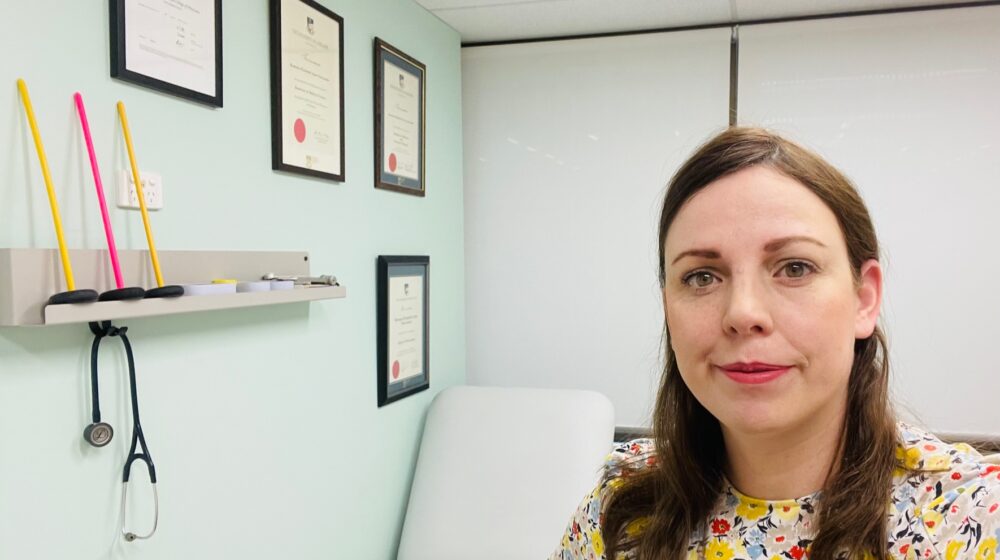
Where are they now? Rowena Mobbs (Newcombe, 1998)
I attended Pymble as a boarder for Years 11 and 12 from Canberra and was in Goodlet House. After a poor performance in my first attempt at Year 11 at my old school, and being labelled a perpetual ‘C’ student with a trajectory of failing my HSC, my mother had the foresight to send me far away and embrace the Pymble ethos that any student could excel, they just had to find their passion. So I chose and loved art and geology, instead of physics and high level maths and ended up with a 99.70 TER. I particularly thank Mrs Colleen Fry for setting me on this path of self belief through art.
Working hard every lunchtime to achieve this mark and as a late starter at the school, I hadn’t solidified the many years of deep-seated friendships of other girls, but it was still so easy to make wonderful connections and friendships that remain enduring.
It was clear to me that Pymble was as much about community spirit and connection, achieving together, as well as individually. There was an enormous sense of respect and equality for women, far ahead of its time.
I felt so proud on speech day to meet with former Prime Minister Hon. John Howard and I remember thinking how good it was that all these girls were going to achieve at least as much as he had! Certainly, some of us were taller I thought.
During my years I enjoyed competing in swimming as well as cross-country running, winning at the IGSA carnival, and represented Australia in junior modern pentathlon before competing at senior World Championships in fencing. The weights gym was a little different back then; we had some rusty old mismatched weights, a pungent old bench press and a tape deck with 80s rock. What could have toughened us up for competition better than that? The sporting facilities today are amazing and a brilliant investment for the school’s future.
Post Pymble life I went to the University of Adelaide for medicine, a choice made on the basis of loving the Adelaide cricket ground. As with Pymble, sport was a major part of my existence and I enjoyed the program at St Mark’s College for 6 years, learning how to laugh more and study less. I moved to Sydney for my final year of training as a cognitive neurologist, and met my husband Tony within a fortnight. We now have two lovely boys, six and eight years old.
By nature, I am quite impatient and for a whole three years of my consulting career I longed for meaning and direction. It didn’t take long for concussion to fall across my path as the major direction for my career, having attended the opening of the Australian Sports Brain Bank and offered to be the neurologist to assist in research. The program has now expanded with a national media presence and one of clinical research into Chronic Traumatic Encephalopathy or CTE, a devastating type of slow dementia faced by boxers, footballers, military personnel, or those with other circumstances of repeated head injury. It is not so much the number of concussions that cause CTE but the number and force of sub-concussions, or those hits without symptoms. At Macquarie University we established the Australian CTE Biobank for longitudinal data collection. We also established a popular patient and family support group called Concussion Connect.
Our future focus is on keeping kids active in sport, but safely so under #PlaySmartStaySmart and we launched the #ConcussionBig5 www.ConcussionBig5.au program for recognising the signs of concussion. This work has remained contentious, as sporting organisations face their own commercial and legal interests. I’ve had to hold fast to my guiding value of a patient-first attitude and not be stared down by big CEOs. Pleasingly, we are now at the cusp of seeing a federal government response to the issue following the release of Senate recommendations and inquiry in which I was a witness.
For me personally, after five years of medical activism I look forward to seeing solutions, a good rest, and then to the next phase in my career in an advisory capacity. For any Pymble girl out there, my best advice in life is to maintain eye contact, smile, but internally be ‘fiercely confident’.
